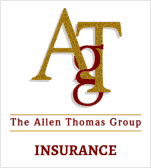Navigating the world of business insurance for tech companies can become a labyrinth of uncertainty, especially in the ever-evolving landscape of 2023.
From cyber threats to intellectual property lawsuits, understanding and obtaining the right coverage is critical to protecting your innovative endeavors.
Let us guide you through this intricate and often overwhelming terrain as we delve into our Essential Guide to Business Insurance for Tech Companies in 2023.
With this comprehensive guide, you’ll have peace of mind knowing that your tech company has the best possible safeguard against potential pitfalls and perils.
Whether it is a startup or an industry giant in insurance, knowledge truly is power!
Our Guide to Business Insurance for Tech Companies in 2023 covers a range of essential insurance policies, such as commercial property insurance, workers’ compensation insurance, professional liability insurance, and more. We also discuss how AI and cybersecurity impact the insurance industry and provide tips on selecting suitable policies to protect businesses against specific risks.
Whether you’re a startup or an established tech company, this guide will help you understand your unique insurance needs in 2023 and beyond.
Essential Business Insurance Policies for Tech Companies
Tech companies operate in a unique landscape constantly evolving and fraught with specific risks. To protect against these risks, tech companies must have adequate business insurance coverage.
Let’s explore some essential insurance policies that every tech company should consider.
General Liability Insurance is one of tech companies’ most fundamental insurance policies. This policy provides coverage for third-party claims of bodily injury or property damage that may arise from business operations. It acts as a safety net when accidents happen, such as a visitor slipping and falling at the company’s office or a client’s property damaged during a service visit.
General Liability Insurance offers comprehensive protection for tech companies by covering their legal defense costs, settlement payments, and medical expenses if someone gets injured on the premises.
It also extends coverage to advertising or copyright infringement claims, protecting against any unintended use of copyrighted material or accusations of defamation in marketing campaigns.
For instance, imagine a software development company hosting a product launch event where one of the attendees accidentally trips over some loose wiring and sustains injuries.
A General Liability Insurance policy will help cover the injured person’s medical expenses, legal fees if they file a lawsuit and potential settlement costs.
To understand the breadth of coverage provided by General Liability Insurance, let’s compare it to other commonly considered policies:
While General Liability Insurance covers many liability risks, tech companies must consider other specialized insurance policies that address their unique vulnerabilities. One such policy is Cyber Liability Insurance.
- Tech companies operate in a high-risk environment, and it is crucial to have adequate insurance coverage. General Liability Insurance is an essential policy that provides comprehensive protection against third-party claims of bodily injury or property damage and advertising or copyright infringement claims. Besides General Liability Insurance, tech companies must consider other specialized policies like Cyber Liability Insurance to address their unique vulnerabilities. These policies cover expenses related to data breaches, legal fees, notification costs, protection for patents, copyrights, trademarks, financial assistance in case of operational disruptions due to covered perils, and cloud computing-related data loss, service interruptions, and cyber attacks. By having the right insurance coverage in place, tech companies can mitigate risks and protect their business interests.
General Liability Insurance
As mentioned earlier, General Liability Insurance protects tech companies from third-party claims of bodily injury or property damage. It’s important to note that this coverage extends beyond physical accidents and includes advertising or copyright infringement claims.
Tech companies often have a digital presence, engaging in online marketing campaigns or publishing content that could inadvertently infringe on someone’s intellectual property rights.
In such cases, General Liability Insurance provides coverage for any legal expenses incurred due to these claims.
Additionally, it can protect against allegations of libel, slander, or defamation arising from the company’s advertising efforts.
While General Liability Insurance is essential for all businesses, its importance is even more pronounced for tech companies. Given their fast-paced nature and reliance on cutting-edge technology, the risk of accidents or unintentional copyright infringements increases.
Having General Liability Insurance gives these companies peace of mind knowing they have financial protection if the unexpected occurs.
Cyber Liability Coverage
In today’s increasingly digital world, tech companies face an ever-growing threat of cyber-attacks and data breaches. That’s why cyber liability coverage has become an essential component of business insurance for tech companies in 2023. This type of coverage is designed to protect businesses from the various financial risks associated with cyber incidents.
So, what does cyber liability coverage entail? It typically includes expenses related to data breaches, such as legal fees, notification costs, forensic investigations, public relations efforts to restore a company’s reputation, credit monitoring services for affected individuals, and even potential liabilities resulting from lawsuits. Essentially, this coverage offers financial protection and support when handling the aftermath of a cyber attack or data breach.
Picture this: You run a successful tech startup that handles sensitive customer information and proprietary software. Unfortunately, your network gets infiltrated by hackers who gain access to thousands of customers’ data. You have to recover from the breach itself and address potential legal actions against your company due to the compromised data. This is where cyber liability coverage alleviates some financial burdens by covering the costs of legal defense fees and any settlements or judgments that may arise.
Now that we understand the importance of cyber liability coverage in protecting tech companies from the financial consequences of cyber incidents, let’s explore another crucial type of insurance tailored specifically for them.
- According to a 2022 survey by Marsh & McLennan, tech companies experienced a 14% increase in cyber insurance rates due to the growing threat of cyber-attacks.
- A report from Future Insights indicated that approximately 75% of U.S. technology businesses carry Cyber Security or Cyber Liability Insurance as of early 2023.
- The Technology & Privacy Risk Report (2022) presented that around 89% of tech companies have some form of Errors and Omissions (Professional Liability) Insurance to protect against claims of inadequate services or advice.
Specialty Business Insurance for Tech Companies
Tech companies operate in a unique landscape that differs significantly from traditional businesses.
They often rely heavily on intellectual property rights, deal with complex algorithms and software development, and face distinctive challenges specific to their industry. That’s where specialty business insurance comes into play – providing comprehensive coverage designed explicitly with tech companies in mind.
This specialized form of insurance combines different types of coverage tailored to address the specific risks tech companies face. It may include cyber liability coverage, as discussed earlier, but other essential coverages include general liability insurance, professional liability insurance (also known as errors and omissions insurance), and intellectual property insurance.
For a tech company, general liability insurance is crucial to protect against claims of property damage or bodily injury that may arise from their operations. Imagine a scenario where a visitor to your office slips and falls, resulting in injuries. General liability insurance will cover any associated medical expenses or legal costs, relieving you of this financial burden.
Let’s consider professional liability insurance. Tech companies often provide professional services such as software development or IT consulting.
Despite best efforts, mistakes or negligence can occur, leading to financial losses for clients. Professional liability insurance safeguards against claims arising from these errors in professional services provided, covering legal costs and potential damages sought by clients.
To put it simply:
One might argue that having these individual coverages separately would suffice rather than bundling them under specialty business insurance. While it is true that standalone policies can be obtained for each type of coverage, specialty business insurance offers the advantage of a streamlined range specifically tailored to the unique needs of tech companies. It simplifies the process by providing comprehensive protection under a single policy, saving time and potentially reducing costs.
Consider this scenario: If each component of your tech product were developed individually by different teams without proper coordination and integration, you might encounter compatibility issues and inefficiencies. In contrast, having all the components produced by a cohesive team streamlines the process and ensures smooth functionality.
Similarly, specialty business insurance combines various coverage under one umbrella for comprehensive protection.
As we have explored the importance of cyber liability coverage and specialty business insurance in mitigating risks specific to tech companies, it is vital for tech companies to carefully assess their insurance needs and acquire suitable protection to safeguard their assets and operations.
Professional Liability Insurance
The risk of errors or omissions can be significant in the fast-paced world of technology, where companies constantly provide services and advice.
This is where professional liability insurance, also known as errors and omissions (E&O) insurance, comes into play. Professional liability insurance covers claims arising from negligence, mistakes, or failure to perform professional services to the expected standard.
Consider an example to understand the importance of professional liability insurance for tech companies.
Imagine a software development company that builds custom applications for clients. Despite their best efforts, a bug in one of their applications causes financial losses for a client’s business. The client may then pursue legal action against the software development company, claiming negligence. Without professional liability insurance, the company would be financially responsible for legal fees, settlements, or judgments.
Professional liability insurance offers several benefits, whether you’re a small startup or an established tech corporation. First and foremost, it provides financial protection by covering legal expenses when facing allegations of negligence or errors in professional services provided. It includes attorney fees, court costs, and settlements or judgments against your business. Furthermore, it can help maintain your reputation by demonstrating your commitment to professionalism and accountability.
In addition to professional liability insurance, another vital coverage for tech companies is Directors and Officers Liability Insurance.
Directors and Officers Liability Insurance
Tech companies often have dedicated executives who make high-level decisions impacting the organization. These executives include directors and officers who hold positions of power and responsibility within the company. However, with great power comes potential legal risks. Directors and officers may face lawsuits from stakeholders, employees, or other parties claiming mismanagement, breaches of fiduciary duties, or regulatory non-compliance.
Think of directors and officers liability insurance as a safety net for these key decision-makers. Similar to how an acrobat relies on a safety harness during daring feats, leaders in tech companies rely on this insurance coverage to protect their personal assets and reputation.
This coverage provides financial protection by covering legal expenses when directors and officers are personally sued for alleged wrongful acts or errors in judgment while performing their managerial duties. It can cover costs associated with investigations, settlements, judgments, or defense costs incurred during legal proceedings.
Let’s say a tech company is accused of misleading investors about the potential of a new product during a crucial fundraising round. The investors might bring a lawsuit against the company’s directors and officers, claiming they acted negligently or engaged in fraudulent activities. Directors and officers liability insurance would cover the legal fees, settlements, or damages resulting from such claims.
Directors and officers liability insurance not only protects the personal assets of individuals but also helps attract qualified executives to join your organization. Knowing that their personal finances won’t be at risk due to unforeseen legal challenges allows directors and officers to focus on making sound decisions in the best interests of the company.
Understanding the importance of professional liability insurance and directors and officers liability insurance is essential for tech companies. However, it’s crucial to consider the costs associated with these coverages and other factors that play into obtaining suitable business insurance.
Costs and Considerations for Business Insurance
When it comes to business insurance for tech companies, several costs and considerations need to be considered. The specific needs of a tech company can vary greatly depending on factors such as the company’s size, the field of technology they operate in, and the nature of their operations.
One important consideration is the type of insurance coverage needed. Tech companies often require a combination of different kinds of insurance, such as general liability insurance, professional liability insurance (also known as errors and omissions insurance), cyber liability insurance, and property insurance. Each type of coverage serves a specific purpose in protecting the company against different risks. For example, cyber liability insurance is crucial for tech companies that store customer data or rely heavily on digital systems, as it provides coverage against data breaches and cyber-attacks.
The costs associated with business insurance for tech companies can also vary significantly. Factors that can impact the cost include the size and revenue of the company, the industry it operates in, the location of its operations, and past claims history. Insurance providers assess these factors to determine the risk associated with insuring a particular tech company and set premiums accordingly.
Tech companies need to consider their coverage limits when selecting business insurance carefully. Coverage limits refer to the maximum amount an insurer will pay for a covered claim. Inadequate coverage limits can leave a tech company vulnerable to significant financial losses in the event of a claim. On the other hand, unnecessarily high coverage limits can result in inflated premiums that may strain the company’s budget.
Moreover, businesses should also consider deductibles when evaluating their business insurance options. Deductibles are the amount policyholders must pay out-of-pocket before their insurance coverage kicks in. Higher deductibles generally lead to lower premiums but also mean higher initial expenses in the event of a claim.
It’s worth noting that tech companies should regularly review and update their insurance coverage to ensure it keeps pace with their evolving needs. As the tech industry evolves rapidly, new risks and challenges emerge. Staying up-to-date with technological advancements and regulatory environment changes is essential for ensuring appropriate coverage levels and minimizing potential gaps in protection.
For instance, consider a small software development company that recently expanded its operations and now handles sensitive customer data. The company may need to reassess its cyber liability insurance coverage to ensure it adequately addresses the increased risk of a data breach.
With any business insurance decision, tech companies must consult with experienced insurance professionals who specialize in serving the unique needs of the tech industry. These professionals can help navigate the complexities of different insurance policies, provide personalized advice on coverage options, and guide companies through the claims process when needed.
Now that we have discussed the costs and considerations involved in business insurance for tech companies let’s explore some predictions for business insurance costs in 2023.
Cost Predictions for 2023
The cost landscape for business insurance is constantly evolving, influenced by factors such as market conditions, industry trends, and external events. When looking at cost predictions for business insurance in 2023, specifically for tech companies, several key factors come into play.
One factor that could impact costs is increased cyber attacks targeting tech companies. As technology advances, so do the tactics employed by cybercriminals. This trend has led to a greater focus on cybersecurity measures and an increased demand for cyber liability insurance. Insurers might adjust their premiums to reflect the heightened risk faced by tech companies, resulting in potentially higher costs for this specific type of coverage.
Another consideration is the overall state of the economy. During economic prosperity or stability periods, insurers may see fewer claims, leading to lower premiums.
Conversely, insurers may face higher claim volumes during economic uncertainty or recession, causing them to adjust premiums accordingly.
Additionally, the evolving regulatory landscape surrounding data privacy and cybersecurity can impact insurance costs for tech companies. As governments strengthen regulations and impose stricter requirements on businesses handling sensitive data, insurers may adjust their pricing models to reflect the increased compliance needs and potential liabilities tech companies face.
For example, imagine a new data privacy law passed in 2023 that places more stringent obligations and penalties on tech companies. Insurers might revise their premiums to account for this increased regulatory risk.
It’s important to note that these cost predictions are subject to change based on various factors and individual circumstances. Tech companies should regularly review their insurance coverages, consult with their insurance advisors, and stay informed about industry trends and market conditions to anticipate potential cost changes and adequately plan for their insurance needs.
Necessity of Risk Management Practices
Risk management practices have become an absolute necessity for tech companies in the fast-paced and ever-evolving world of technology. With the increasing reliance on digital infrastructure, connectivity, and data, the potential risks that can impact a tech company’s operations and reputation are vast and complex.
Tech companies face many risks, including cyber threats, data breaches, intellectual property theft, lawsuits, operational disruptions, and regulatory compliance issues. These risks can lead to financial losses, damage to brand reputation, legal liabilities, and even the loss of customer trust.
Imagine a tech company that handles sensitive customer data. If they experience a major data breach due to inadequate cybersecurity measures could result in significant financial losses from potential lawsuits, regulatory penalties, and reputational damage. The impact could be devastating for the company and its customers, who trusted them with their personal information.
To further illustrate the necessity of risk management practices in the tech industry, let’s consider some key risks and their potential consequences:
Considering these risks and their potential consequences, it becomes clear that comprehensive risk management practices are essential for tech companies’ long-term success and sustainability. It is crucial for these companies to proactively identify potential risks, assess their likelihood and impact, implement strategies to mitigate those risks, and regularly monitor and adapt their risk management efforts.
Exploring Workers’ Compensation and Employment Practice Liability
Among the various risks that tech companies face, two key areas to focus on are workers’ compensation and employment practice liability.
Workers’ compensation is an insurance coverage that provides wage replacement and medical benefits to injured or ill employees due to their work. In the tech industry, where employees often spend long hours sitting at desks and may be exposed to ergonomic issues or eye strain, workers’ compensation is a critical protection for employees and employers. It ensures that injured employees receive the necessary medical care and financial support while shielding the company from potential lawsuits related to workplace injuries.
Employment practice liability refers to the risk of legal claims arising from employment-related issues such as discrimination, harassment, wrongful termination, or violation of labor laws. Companies must have robust policies and procedures to prevent and address such issues in the tech industry, where diverse teams collaborate and interact in fast-paced environments.
Employment practice liability insurance provides financial protection against potential legal claims and the high costs associated with defending these claims.
Consider a scenario where an employee alleges they were unfairly terminated due to age discrimination. Without proper documentation, processes, or insurance coverage, the tech company could face a lengthy legal battle that impacts its finances and damages its reputation.
Let’s summarize the importance of workers’ compensation and employment practice liability: Tech companies must prioritize risk management by implementing comprehensive policies, training programs, safety measures and obtaining suitable insurance coverage. By doing so, they can foster a safe and inclusive work environment while mitigating potential financial and reputational risks.
Understanding Workers’ Compensation
In the fast-paced and dynamic world of technology, workplace accidents and injuries can occur despite the best safety measures.
That’s where workers’ compensation comes into play as essential insurance coverage for tech companies. This type of insurance provides financial protection to employees who suffer work-related injuries or illnesses, ensuring they receive medical treatment and compensation for lost wages during their recovery.
For example, a software engineer at a tech company sustains repetitive stress injuries from prolonged computer use. These injuries may lead to medical expenses and significant time away from work. Workers’ compensation insurance would cover the costs of medical treatment, rehabilitation therapy, and any necessary equipment to aid recovery. It would also provide wage replacement benefits for the duration of their absence.
Now, let’s delve deeper into the implications of workers’ compensation insurance for tech companies.
Implications of Employment Practices Liability Insurance
Running a tech company involves managing human resources and maintaining a positive work environment. However, even with the best intentions, allegations of employment practices misconduct can arise. This is where employment practices liability insurance (EPLI) becomes crucial for tech companies. EPLI protects businesses against claims arising from employment-related issues such as discrimination, harassment, wrongful termination, or failure to promote.
For instance, imagine a scenario where an employee at a tech company files a lawsuit alleging gender discrimination in hiring practices. The legal proceedings could be financially devastating if the company does not have EPLI coverage. With EPLI in place, the insurance policy would help cover legal defense costs, settlements, or judgments awarded to the aggrieved employee, mitigating potential financial losses.
Employment practices liability claims can create significant negative publicity and damage a tech company’s reputation among current employees and potential talent. By having EPLI coverage, a company can demonstrate its commitment to fair and ethical employment practices, reassuring employees and stakeholders alike.
It’s important to note that EPLI does have limitations and exclusions. For example, it typically does not cover an employer’s intentional acts or criminal actions, nor does it provide coverage for bodily injury or workers’ compensation claims.
While EPLI coverage is not legally required for tech companies, it is a prudent investment to safeguard against potential legal risks. By obtaining EPLI, companies can protect their financial interests and focus on creating a positive work environment that nurtures employee growth and productivity.
Think of EPLI as a shield that defends your tech company from the uncertainties of employment-related litigation, allowing you to navigate the challenges confidently.
Can you provide examples of successful insurance strategies implemented by other tech companies?
Absolutely! One successful insurance strategy that several tech companies have implemented is Cyber Liability Insurance.
With the rise in cyber threats, this type of insurance covers potential losses or damages due to data breaches, hacking, and other cyber attacks.
According to a survey by Advisen, over 80% of tech companies have purchased Cyber Liability Insurance in recent years, demonstrating its effectiveness in mitigating risks and protecting valuable digital assets. Also, many clients require you to have a sufficient level of cyber liability insurance to enter into an agreement with them.
What happens if a tech company experiences a security breach or data loss? Will insurance cover these costs?
Yes, insurance can help cover the costs associated with a security breach or data loss for tech companies. Cybersecurity insurance policies typically include coverage for expenses such as investigation and notification costs, legal fees, public relations efforts, and even potential fines and penalties. According to a study by IBM, the average data breach cost in 2020 was $3.86 million, making insurance coverage essential for mitigating financial damages in case of an incident.
What types of insurance do tech companies typically need?
Tech companies typically need several types of insurance to protect their business. These include general liability insurance, which covers third-party bodily injury or property damage claims; professional liability insurance, also known as errors and omissions insurance, which protects against claims of negligence or inadequate work; cyber liability insurance, which safeguards against data breaches and cyber-attacks; and business interruption insurance, which provides financial support in case of unforeseen disruptions.
According to a survey by Marsh, a leading insurance brokerage firm, 66% of tech firms have experienced a cyber incident in the past year, highlighting the importance of having reliable insurance coverage in this rapidly evolving industry.
Are there any new or emerging risks that tech companies should be aware of regarding insurance?
Yes, there are several new and emerging risks that tech companies should be aware of when it comes to insurance in 2023. One significant risk is cyber attacks and data breaches, a major threat to tech companies’ sensitive information and customer data.
According to a report by Cybersecurity Ventures, the cost of cybercrime is expected to reach $10.5 trillion annually by 2025. Another emerging risk is regulatory compliance, as governments worldwide strengthen privacy laws and impose hefty fines for non-compliance. For example, the European Union’s General Data Protection Regulation (GDPR) has already resulted in significant penalties for tech companies. Tech companies must ensure comprehensive coverage addressing these new risks to protect their financial stability and reputation.
Get The Coverage You Need For Your Tech Business With The Allen Thomas Group
At The Allen Thomas Group, we understand the unique needs of tech companies in 2023 and beyond.
With our comprehensive coverage options, you can safeguard your business against unforeseen risks and potential liabilities. We offer tailored solutions that address the specific challenges faced by tech companies, ensuring that you have the right coverage for your unique situation.
Our team of experts is dedicated to helping you navigate the complex world of business insurance. We provide personalized guidance and support, ensuring that you have a clear understanding of your coverage and the peace of mind that comes with it.
Don’t leave your business vulnerable to the unexpected. Protect your assets and secure your future with the right insurance coverage.
Contact us today to learn more about our comprehensive coverage options and how we can help you protect your business.
Don’t wait until it’s too late. Take action now and ensure the long-term success of your tech company.
Invest in the future of your business with the right insurance coverage.
At The Allen Thomas Group, we believe that every tech company deserves the peace of mind that comes with comprehensive insurance coverage.
Don’t let unforeseen risks derail your success. Protect your business with the right insurance coverage today.
Secure the future of your tech company with the right insurance coverage today.












